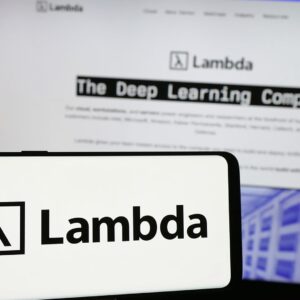OpenAI is in talks to acquire Windsurf, the developer-focused AI company previously known as Codeium, in a deal reportedly valued at around $3 billion, according to sources.
Windsurf has built a name for itself with AI-powered coding assistants that help engineers write software faster, cleaner, and with fewer errors. The company raised over $200 million in funding last year and was valued at $1.25 billion—making this potential acquisition a notable jump in valuation and a big bet by OpenAI on the future of AI-assisted development.
While the deal hasn’t been finalized, discussions appear to be in advanced stages.
What Makes Windsurf So Valuable?
Windsurf offers tools that are widely adopted by developers to autocomplete code, suggest fixes, and even refactor entire blocks of logic. It’s a direct competitor to GitHub Copilot, which is powered by OpenAI models and backed by Microsoft.
What’s interesting here is that OpenAI already powers many tools in the coding space—including Copilot—so buying Windsurf would essentially bring one of its main rivals under its own roof. That raises questions about how the two offerings would be positioned, and whether Copilot and Windsurf would eventually merge or compete internally.

Windsurf’s strength lies in its developer-first approach. It has focused on speed, reliability, and language support, often outperforming more polished, enterprise-focused tools in raw performance and responsiveness.
Strategic Goals Behind the Move
For OpenAI, this isn’t just about owning another product. It’s about gaining tighter control over the developer experience. With tools like ChatGPT already helping with code explanation and generation, integrating a purpose-built platform like Windsurf could make OpenAI the default name in AI coding—across solo devs, startups, and big engineering teams.
It also suggests that OpenAI wants to own more of the stack—not just models and APIs, but actual products that users rely on daily.
Impact on the AI Tools Market
GitHub Copilot has a deep integration into Microsoft’s ecosystem, and newer players like Anysphere and Anthropic’s Claude-based dev tools are also gaining traction.
If OpenAI goes ahead with this deal, it would effectively own two of the top tools in the space: Copilot (through Microsoft) and Windsurf (directly). That kind of dominance is likely to attract attention from regulators, especially in the U.S. and Europe, where concerns about consolidation in the AI industry are growing.
Some developers are already speculating about what this might mean for Windsurf’s free tier or data privacy model. Others are hopeful the product will get even better under OpenAI’s guidance
What Happens Next?
Neither OpenAI nor Windsurf has officially commented on the talks. But the tech world is watching closely.
If the deal closes, it will be one of OpenAI’s largest acquisitions ever—and a sign that it’s not just building cutting-edge models like GPT-4, but also looking to own the products people use them in every day.
Whether Windsurf stays independent under the OpenAI umbrella or gets folded into a new tool altogether, the message is clear: AI isn’t just about generating answers. It’s about building tools that change how work gets done.
References
- Bloomberg: OpenAI in Talks to Acquire Codeium (Windsurf)
- Windsurf Official Website
- OpenAI’s Research and Deployment Principles









